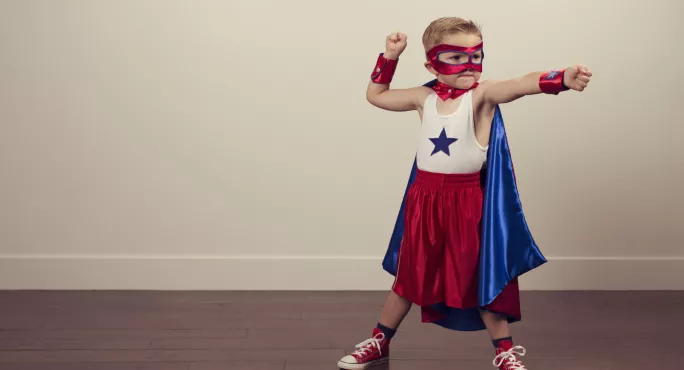Thirty Year 9 boys, split into two “squads” of 15, are positioned at opposite ends of the sports hall. A bucket of sponge balls is in front of them.
Surveying the scene of random gymnastic and sporting equipment laid out around the hall, they try to find a good spot of cover or a route through the obstacles.
On a whistle, the boys launch themselves into the area, grabbing a ball as they go. The “mission” is simple. Be the last team standing. Balls fly everywhere, shouts to teammates rise up and soon the hall is alive with movement, excitement and action.
This is PE with a video-game twist! It’s a lot of fun, of course - but it has a serious purpose: the gamification of PE. In some ways it’s not all that original, with its basis in dodgeball, but to the pupils participating, it’s unique, exciting and relevant to them.
This means we have different levels and arenas they can “unlock” as they work through various game modes. We call them squads and missions, not teams and objectives, and there are even extra points for certain types of shots they land when taking out an opponent - all concepts they are familiar with from their games.
PE lessons inspired by video games
Of course, the idea of gamification in education has been a hot topic for some time - including within PE, where many schools have developed curricular units specifically designed to engage pupils in traditional PE but using completely non-traditional contexts.
As Carina González, professor of computer architecture technology at the University of La Laguna in Spain, points out in her 2018 Paper on “The benefits of Gamification and Videogames for Physical Exercise”, PE has always been “considered a positive element and widely as a fun, engaging and social activity” and while our main objectives revolve around developing motor skills, knowledge, holistic characteristics and healthy behaviours, there are no rules to say how this should happen.
Indeed, several research projects related to gamification, education and PE have shown that the introduction of gaming elements such as challenges, levels, points, leaderboards and badges all have a positive impact on the motivation, engagement and attainment of children and adolescents in physical exercise.
Another great example I saw recently was a throwing lesson in athletics. Achievements led to progress through levels, unlocking harder challenges, and this encouraged pupils to maintain focus far more than traditional throw-collect-repeat style lessons of the past.
If you can’t beat ‘em…
Activities such as the one our students are taking part in appear to be popular because they’re relatable. In a society where many of our pupils spend a significant portion of their free time online or gaming, it makes complete sense that they would feel enthused by activities that mirror other aspects of their lives.
Rather than trying to compete with video games for children’s attention, it makes far more sense to close the gap between the two and benefit from the enthusiasm pupils have for gaming.
In fact, our curriculum plan now contains a solid unit of core skills all based on activities developed from video games to ensure that we make this connection whenever possible.
Of course, it’s not for everyone, and not for every occasion; you would struggle to “gamify” your entire PE curriculum. But I would encourage you to think about what aspects you could introduce so that you can see the impact on your pupils.
There is also a fine balance between the gamification of an activity and making it ultra-competitive so you do have to think carefully to ensure every pupil can achieve success, that performance is based on individual accomplishment and that you design rewards to ensure inclusion and achievement.
Overall, though, it’s clear that gamification such as our softball competition is proving hugely popular. There is a club planned for next year and pupils are already discussing techniques and tactics and even using their lunch breaks to organise unofficial practice sessions.
Philip Mathe is director of sport at Brighton College Al Ain in Abu Dhabi





